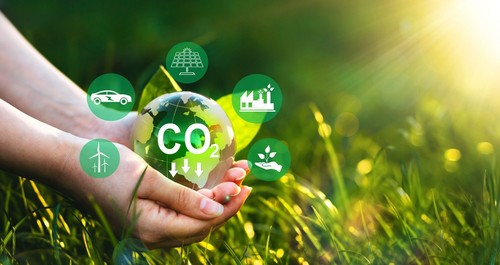
Energy-Efficient Air Conditioning: Tips for Reducing Carbon Footprint. In today’s world, where environmental sustainability is a pressing concern, it’s essential to explore ways to reduce our carbon footprint.
One significant area where we can make a difference is in our use of air conditioning systems.
In this comprehensive guide, we will delve into various strategies and practices to make our air conditioning usage more energy-efficient, thereby contributing to a greener planet.
Table of Contents
Understanding Carbon Footprint
Carbon footprint refers to the total amount of greenhouse gases emitted directly or indirectly by human activities. It primarily consists of carbon dioxide (CO2) emissions but may also include other greenhouse gases like methane and nitrous oxide.
Air conditioning plays a significant role in contributing to carbon footprint due to its reliance on electricity, much of which is generated from fossil fuels.
By understanding how our air conditioning usage affects our carbon footprint, we can take proactive steps to minimize its environmental impact.
Energy-Efficient Cooling Practices
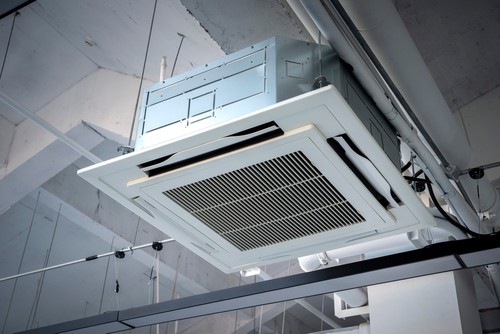
1. Proper Maintenance
Regular maintenance of air conditioning systems is crucial for optimal performance and energy efficiency.
Tasks such as cleaning or replacing filters, checking refrigerant levels, and inspecting ductwork should be carried out periodically to ensure that the system operates efficiently.
2. Programmable Thermostat Installation
Installing programmable thermostats allows users to set temperature schedules based on occupancy patterns and preferences.
By adjusting temperatures automatically, energy consumption can be optimized, leading to significant energy savings and reduced carbon emissions.
3. Energy-Efficient Air Conditioning Units
Investing in energy-efficient air conditioning units with high SEER ratings can significantly reduce energy consumption.
These units are designed to operate more efficiently, resulting in lower electricity bills and a smaller carbon footprint.
Optimal Cooling Strategies
Use of Natural Ventilation
Maximizing natural ventilation by opening windows and doors during cooler hours can reduce the need for mechanical cooling.
By allowing fresh air to circulate, indoor comfort can be maintained without relying solely on air conditioning.
Proper Insulation and Sealing
Ensuring that buildings are adequately insulated and sealed helps minimize heat transfer, thereby reducing the workload on air conditioning systems.
Proper insulation and sealing also contribute to maintaining consistent indoor temperatures and improving overall energy efficiency.
Strategic Shading
Strategic shading techniques, such as installing awnings, planting trees, or using window treatments, can help block direct sunlight and reduce heat gain inside buildings.
By shading windows and outdoor spaces, the demand for air conditioning can be reduced, resulting in energy savings and a smaller carbon footprint.
Behavioral Changes and Habits
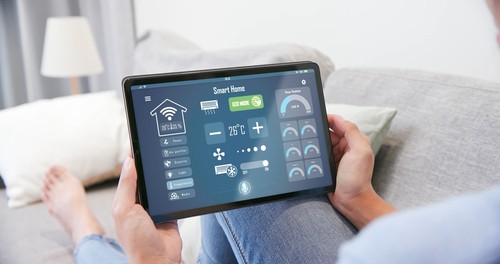
Temperature Setpoint Adjustment
Encouraging occupants to set thermostats to slightly higher temperatures during warmer months can lead to significant energy savings.
Using fans or adjusting clothing layers can help maintain comfort levels without the need for excessive cooling.
Efficient Use of Air Conditioning
Promoting energy-conscious behavior, such as turning off the air conditioning when leaving a room or using programmable timers, can help reduce unnecessary energy consumption.
Additionally, keeping doors and windows closed while air conditioning is in use helps prevent cool air from escaping, improving overall efficiency.
Renewable Energy Integration
Solar-Powered Air Conditioning
Installing solar-powered air conditioning systems harnesses renewable energy from the sun to power cooling operations.
By reducing reliance on grid electricity, solar-powered systems can significantly lower carbon emissions associated with air conditioning usage.
Off-Peak Energy Consumption
Taking advantage of off-peak electricity rates for air conditioning usage can further reduce carbon footprint and energy costs.
By scheduling cooling operations during times of lower demand, such as late at night or early in the morning, users can minimize their environmental impact.
Monitoring and Optimization
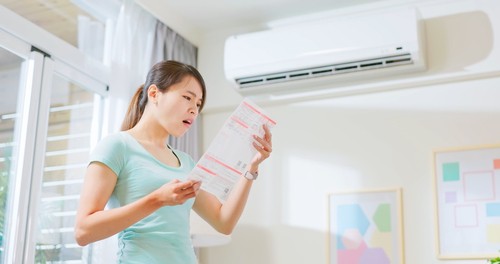
1. Energy Usage Tracking
Regularly monitoring and tracking energy usage associated with air conditioning systems can provide valuable insights into consumption patterns.
By identifying areas of inefficiency, users can take corrective actions to optimize energy usage and reduce carbon emissions.
2. Regular Performance Evaluation
Conducting periodic evaluations of air conditioning performance helps ensure that systems operate at peak efficiency.
By assessing factors such as cooling capacity, energy consumption, and overall effectiveness, users can identify opportunities for improvement and implement necessary adjustments.
FAQ
Can I Retrofit My Existing Air Conditioning System to Improve Energy Efficiency?
Yes, it’s possible to retrofit existing air conditioning systems with energy-efficient components or upgrades.
This may include installing programmable thermostats, upgrading insulation, sealing ductwork, or replacing older units with more efficient models.
Consulting with HVAC professionals can help determine the most suitable retrofit options for your specific system.
Are There Government Incentives or Rebates Available for Energy-Efficient Air Conditioning Upgrades?
Many governments and utility companies offer incentives, rebates, or tax credits to encourage the adoption of energy-efficient technologies, including air conditioning systems.
These incentives may vary depending on location and eligibility criteria. It’s advisable to check with local authorities or energy providers to explore available programs and potential savings.
What Are Some Advanced Technologies or Features That Enhance Air Conditioning Efficiency?
Advanced technologies such as variable-speed compressors, smart sensors, and zoned cooling systems can enhance air conditioning efficiency by optimizing performance based on real-time conditions and user preferences.
Features like dehumidification modes, energy-saving algorithms, and remote access control also contribute to improved efficiency and comfort.
How Can I Estimate the Potential Energy Savings from Implementing Energy-Efficient Air Conditioning Practices?
Estimating energy savings from energy-efficient air conditioning practices involves assessing factors such as current energy consumption, projected efficiency improvements, and cost savings associated with reduced energy usage.
Online calculators, energy audits, or consultations with HVAC professionals can help provide accurate estimates tailored to your specific circumstances.
What Role Do Building Design and Orientation Play in Maximizing Air Conditioning Efficiency?
Building design and orientation influence air conditioning efficiency by affecting factors such as solar heat gain, natural ventilation, and thermal insulation.
Proper orientation, shading strategies, window placement, and insulation materials can help minimize heat transfer and optimize indoor comfort levels, thereby reducing the need for excessive cooling and energy consumption.
Energy-Efficient Air Conditioning: Tips for Reducing Carbon Footprint – Conclusion
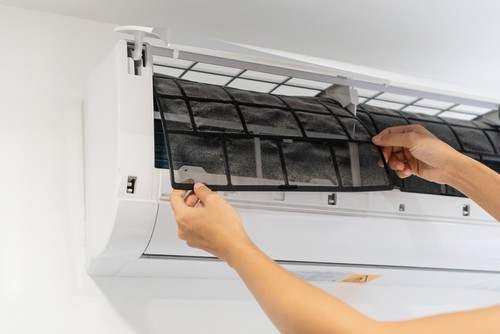
In conclusion, adopting energy-efficient practices in air conditioning usage is essential for reducing carbon footprint and mitigating climate change.
By implementing the strategies outlined in this guide, individuals and businesses can contribute to a more sustainable future while enjoying cost savings and improved comfort levels.
Take proactive steps today to make your air conditioning usage more energy-efficient.
Whether through proper maintenance, behavioral changes, or the integration of renewable energy solutions, every effort counts in reducing carbon emissions and preserving the planet for future generations.
Are you seeking professional and reliable aircon services in Singapore? Contact us today!
